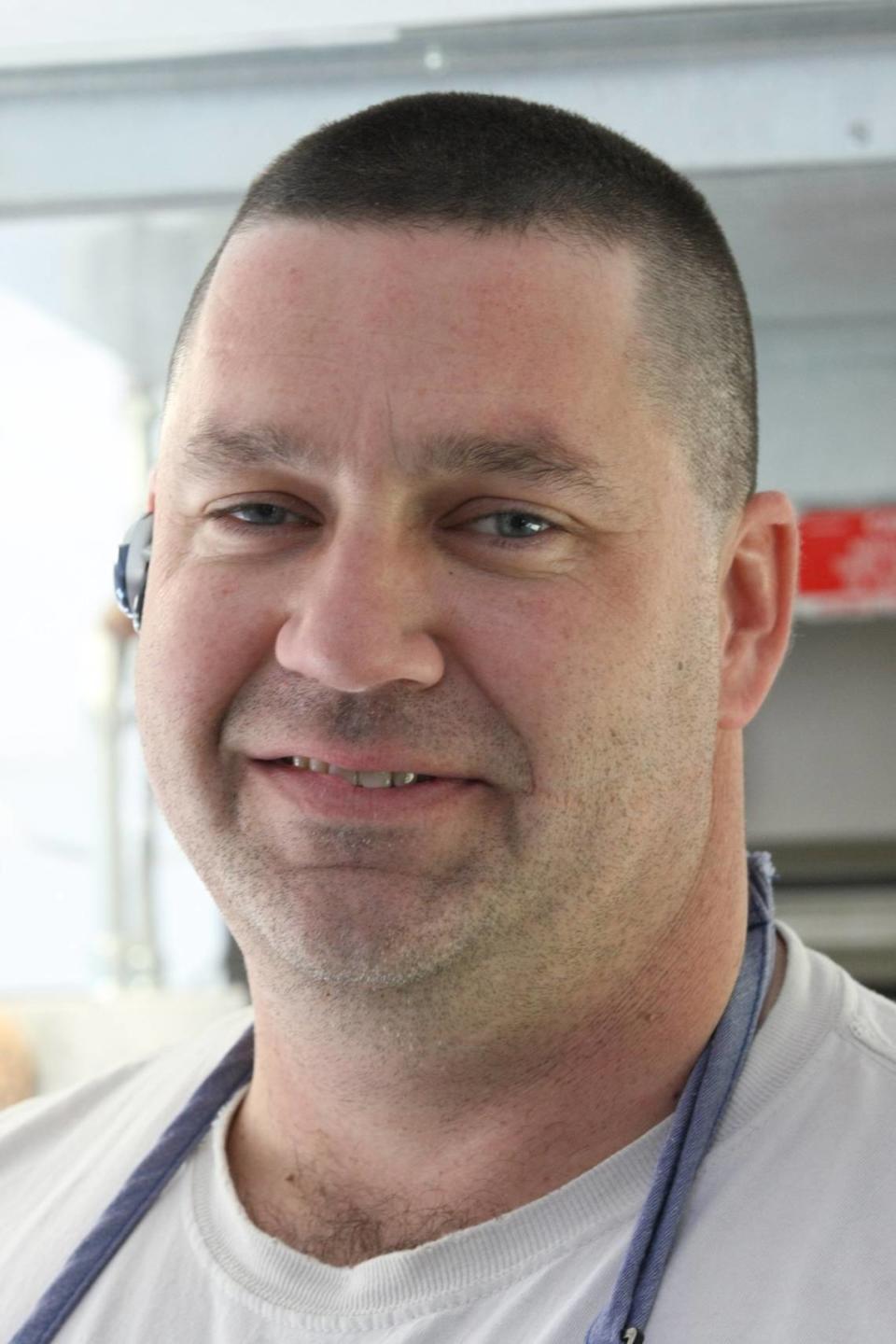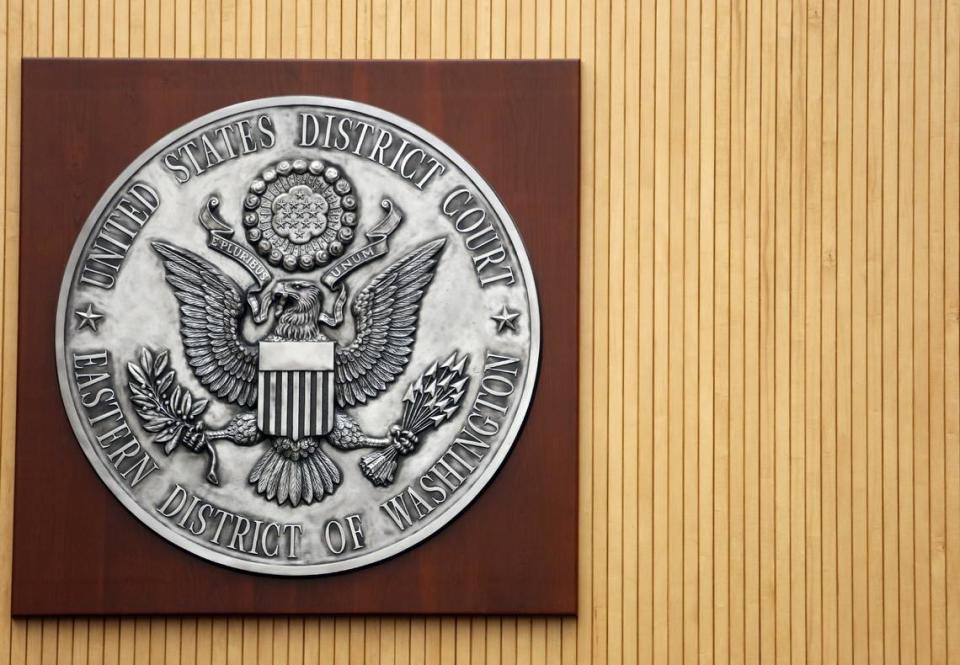2 Tri-Cities small business owners accused of over $1 million COVID loan fraud
Two Tri-Cities small business owners have been indicted on felony charges of COVID loan fraud, along with a woman accused of creating false documents to support their loan applications.
David “Kurt” Schneider of Kennewick, Leif Gerald Larson of Pasco and Kelly Jo Driver of South Carolina are accused of conspiracy to commit wire fraud and bank fraud, wire and bank fraud, and false, fictitious, or fraudulent claims.
Schneider also is accused of money laundering.
The federal indictment alleges the three fraudulently obtained at least $250,000 through federal CARES Act loans during the pandemic and they also submitted false applications for an additional $1 million in CARES Act funding that was not approved.
“Many struggling, deserving small businesses requested money from COVID-19 relief programs,” said Vanessa Waldref, U.S. attorney for the Eastern District of Washington. “Because of the overwhelming need, the programs quickly ran out of money and some businesses were not able to obtain the critical funding they needed.”
Larsen’s applications were for Larsen Firearms of Pasco and Schneider’s applications were for Solar Mobility, RealNZ Water and Tempest Tactical Solutions. Schneider previously owned the All American Fish & Chips wagon operating at John Dam Plaza in Richland.
Driver created false payroll records for companies and false Internal Revenue Service payroll tax forms in support of the fraudulent loan applications, according to a federal court document.
In return for providing documents, she asked for 10% of the loan amounts, she told an undercover, special agent with the Federal Bureau of Investigation, according to a court document.
While Schneider and Driver were allegedly committing fraud, Schneider accused Community First Bank in Kennewick of fraud when it questioned his loan paperwork, and Driver threatened the bank with “legal and ethical reporting to the appropriate agencies and organizations” if it did not forgive the loan.
Under the federal Coronavirus Aid, Relief and Economic Security Act, or CARES Act, low interest Economic Injury Disaster loans were offered to help businesses maintain operations during the pandemic. A second type of CARES ACT loan, a Paycheck Protection Program loan, was required to be used primarily to pay wages during the pandemic and was eligible to be forgiven rather than paid back.
Schneider first applied for a federal Economic Injury Disaster (EID) loan at the end of March 2020, saying the company had no revenue in the 12 months through January 2020 and no employees.
He received $1,000.
He then would team up with Driver to apply for multiple COVID-19 loans for his companies and to apply for forgiveness of two of the loans he was awarded.
Solar Mobility loans
Future applications Schneider and Driver submitted said he had five and later 10 employees at Solar Mobility and a monthly payroll of up to $49,320. The company sells solar-powered wheelchairs.
Although applications made with Driver’s assistance said the company had revenue, the Washington state Department of Revenue said Schneider reported no revenue in 2019 or 2020, according to court documents.

His only wages in those two years were from a Hanford vitrification plant job at Waste Treatment Completion C.o., according to the Washington state Employment Security Department.
Schneider and Driver succeeded in winning a Paycheck Protection Program (PPP) loan of $59,300 in August 2020 through Community First Bank. Days later Schneider sent Driver $5,000 from an account in the name of his company RealNZ Water, according to a court document.
Later that month, Schneider withdrew $10,000 in cash from a Solar Mobility bank account and spent $2,740 from the account at a firearm company in Texas. The next month he withdrew about $30,700 from the account and wrote a check to BMW Tri-Cities in Richland.
“At no time did it appear that any of the PPP funds were used for payroll expenses in August or September 2020, but instead for personal expenses,” according to a court document.
Schenider and Driver would apply for another PPP loan in January 2021, this one for $123,300, but Community First Bank wanted more information on wages paid.
The application claimed an average monthly payroll of about $49,300.
Schneider sent along allegedly false IRS 941 forms created by Driver, according to a court document. But the bank also wanted to see bank statements for Solar Mobility’s account at a different bank where the $59,300 PPP loan had been deposited.
Schneider sent the statements, which showed no wages paid, according to a court document.
“Due to the uncertainty of the pandemic and banks being closed because of exposure to COVID, my employees wanted to be paid in cash, so we paid in cash and still filed our (IRS) 941s accordingly,” Schneider told the bank in an email, according to a court document.
The loan application was declined.
When an application was made to Community First Bank to have the PPP loan that was awarded in 2020 forgiven, bank officials were skeptical and denied the application. The loan was guaranteed by the U.S. Small Business Administration, and losses where shifted to the agency, according to a court document.
Schneider and Driver also tried to obtain a PPP loan of about $107,000 from the Bank of the West, which was not approved.
Loans for Tempest Tactical and RealNZ
Applications also were submitted for two loans for Schneider’s Tempest Tactical Solutions company in September and October 2020.
Washington state and bank records raised red flags with officials required to approve the loans, and Schneider received no money.

Although four employees were claimed, the Tempest Tactical Solutions bank account showed spending only for clothes and travel and cash withdrawals, according to a court document.
The Washington state Department of Revenue had no records of the company existing or reporting revenue and no wages were reported to the Washington state Employment Security Department, according to a court document.
Applications also were made in spring 2020 for two loans for Schneider’s company RealNZ Water, of Kennewick, which sells water bottled in New Zealand, according to the company’s website.
Although the company reported employing up to 10 employees, it was not registered as a company with the state and reported no wages to the state, according to a court document.
Schneider received an EDI loan of $25,000 directly from the Small Business Administration plus a PPP loan of about $59,000 through the Bank of America.
Two applications to forgive that PPP loan were not approved and the loan went into default in August 2022. The Small Business Administration, which had guaranteed the loan reimbursed the Bank of America for both the principal and interest of the loan.
Schneider and Driver also applied for a $123,300 PPP Loan in January 2021 for RealNZ Water that the Bank of America did not approve. Schneider also filed another EDI Loan application late that year for $233,500 that was flagged by the Small Business Administration as suspected fraud because it matched a previous application.
Larsen Firearms loans
Like Schneider, Larsen initially submitted an EDI loan saying he had no employees and received $1,000 in 2020.
Ten months later in February 2021 he and Driver falsely claimed Larsen Firearms had 10 employees and requested more money.
But when FBI agents spoke with Larsen, he admitted he had no employees and that Driver had created false payroll documentation for the claim, according to a court document. Larsen withdrew the request.
He and Driver also had applied in March 2021 for a PPP loan of about $149,000 for Larsen Firearms using falsified documents that claimed 10 employees, according to a court document.
The loan was approved and Larsen received the money two days before he spoke with FBI agents. He sent Driver $15,000 the same day he received the money.
When Driver spoke with an undercover FBI agent a month after the FBI met with Larsen, she gave them tips such as trying to target a loan amount close to $150,000 to look “realistic,” according to a court document.
To get the ideal amount of money, the company would “have to have employees on paper,” she said, according to a court document.
She offered to assist him in creating a fictitious IRS Form 941 and a fictitious payroll register for 2020 and to use her experience in government contracting and working for the IRS to help fill out the loan applications, according to a court document.
She recommended showing different amounts paid to employees on paperwork because “they can’t all make the exact same thing — it look bad,” according to the court document.
The fraud charges carry sentences of up to 30 years in federal prison, as well as restitution for fraudulently obtained funds.
The case was investigated by the Eastern District of Washington COVID-19 Fraud Strike Force and by FBI and Small Business Administration Office of Inspector General. This case is being prosecuted by Assistant U.S. Attorneys Jeremy Kelley and Frieda Zimmerman.
Schneider’s attorney said they had no comment on the charges at this time.
The Tri-City Herald left a message for Larsen’s attorney, but did not immediately receive a reply. No attorney for Driver is listed in court documents.

